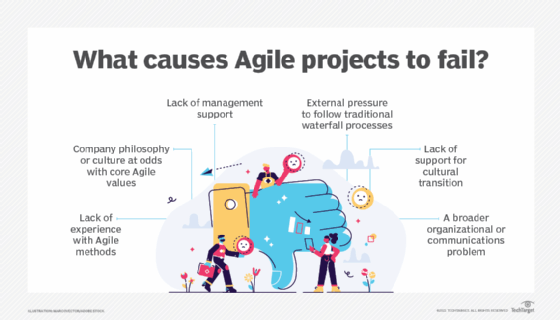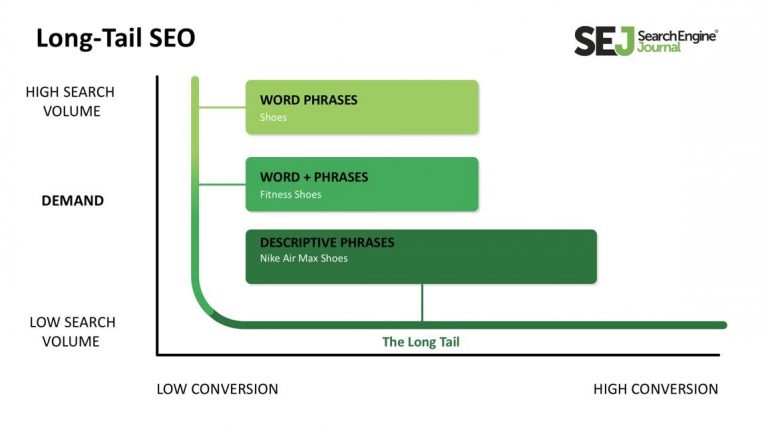Successful project management is essential for delivering projects on time and within budget. Agile methodologies have gained popularity in recent years due to their flexibility and ability to adapt to changing requirements throughout the project lifecycle. In this article, we will explore the key role that agile methodologies play in ensuring successful project management, including their benefits, best practices, and how they compare to traditional project management approaches. By understanding the importance of agile methodologies in project management, organizations can improve efficiency, collaboration, and ultimately achieve project success.
Definition of Agile Methodologies
Agile methodologies are a set of practices and principles that promote adaptive planning, evolutionary development, early delivery, and continuous improvement in software development projects. These methods prioritize flexibility, communication, and collaboration among team members to respond effectively to changing requirements and deliver high-quality results in a timely manner. The core values of Agile methodologies include individuals and interactions over processes and tools, working software over comprehensive documentation, customer collaboration over contract negotiation, and responding to change over following a plan.
Agile methodologies emphasize breaking down projects into smaller iterations or sprints, collaborating closely with stakeholders, and adapting to feedback promptly. This iterative and incremental approach enables project teams to quickly respond to changing needs, reduce risks, and deliver valuable products to customers.
To know more about how Agile methodologies can be applied in web development projects, visit Anyalpha web development services.
Benefits of Agile Methodologies in Project Management
- Flexibility: Agile methodologies allow for changes to be implemented quickly and efficiently, ensuring that project goals are met even as requirements evolve.
- Transparency: Agile practices promote frequent communication and collaboration, providing stakeholders with visibility into the project progress and making it easier to address any issues that may arise.
- Improved Quality: By breaking down the project into smaller chunks and conducting frequent testing, Agile methodologies help in identifying and resolving issues early on, resulting in higher quality deliverables.
- Enhanced Customer Satisfaction: Agile frameworks prioritize customer feedback and involvement throughout the project, leading to higher customer satisfaction as their needs are continuously met.
- Faster Deliveries: With shorter development cycles and regular feedback loops, Agile methodologies enable faster deliveries, allowing projects to adapt to changes swiftly and capitalize on emerging opportunities.
For more information on how Agile methodologies can benefit your project, visit AnyAlpha’s web development services in California.
Key Principles of Agile Methodologies
-
Iterative approach: Agile methodologies emphasize breaking the project into smaller, iterative cycles, allowing for continuous improvement and feedback throughout the project.
-
Collaboration and communication: Agile promotes a high level of collaboration and communication within the project team, as well as with stakeholders, to ensure everyone is on the same page.
-
Flexibility and adaptability: Agile methodologies are designed to be flexible and adaptable to changes, allowing for adjustments to be made as needed based on feedback and new information.
-
Customer-centric: Agile places a strong focus on delivering value to customers through incremental delivery of features, ensuring that customer needs are prioritized throughout the project.
-
Empowerment of team members: Agile encourages self-managing teams and empowers team members to make decisions, fostering a sense of ownership and accountability.
For more information on how Agile methodologies can be utilized in successful project management, visit our website.
Agile Methodologies in a Dynamic Project Environment
- Agile methodologies are a set of principles that prioritize flexibility, collaboration, and the ability to adapt to change in project management.
- In a dynamic project environment, where requirements are constantly evolving and stakeholders have varying priorities, agile methodologies provide a structured framework for managing these challenges.
- Agile methods, such as Scrum, Kanban, and Extreme Programming, promote iterative development, frequent feedback loops, and continuous improvement.
- Teams working in a dynamic project environment benefit from the transparency, visibility, and adaptability offered by agile methodologies.
- By breaking down work into smaller, manageable increments, agile teams can quickly respond to changes and deliver value incrementally.
- Agile methodologies also enhance communication among team members and stakeholders, fostering collaboration and alignment towards project goals.
For more information on how agile methodologies can be applied in dynamic project environments, visit AnyAlpha’s database page.
Comparison of Agile and Traditional Project Management
-
Flexibility and Adaptability: Agile project management allows for frequent iterations and changes, responding to feedback and adapting to evolving requirements. Traditional project management follows a linear, sequential approach with limited room for changes once the plan is set.
-
Client Involvement: Agile methodologies promote regular collaboration and engagement with clients throughout the project, ensuring their needs are met. In traditional project management, client involvement is typically limited to the beginning and end of the project.
-
Risk Management: Agile projects manage risks by addressing them early and continuously throughout the project lifecycle. Traditional project management often deals with risks in a reactive manner when they arise.
-
Time and Cost Management: Agile projects prioritize delivering incremental value quickly over strict adherence to predefined schedules and budgets. Traditional project management focuses on meeting predetermined timelines and budgets.
For more information on project management terms and methodologies, visit our website: Project Management Terms.
Successful Implementation of Agile Methodologies
-
Commitment from the Team: Team members must fully understand and commit to the Agile methodologies being implemented. Clear communication and collaboration are key to ensuring success.
-
Effective Sprint Planning: Proper planning and prioritization of tasks during sprint planning sessions are crucial. This involves breaking down tasks into manageable chunks and setting realistic deadlines.
-
Continuous Feedback: Regular feedback loops between team members and stakeholders help in identifying and addressing issues promptly. This allows for adjustments to be made throughout the project lifecycle.
-
Adaptability: Agile methodologies allow for flexibility and adaptability to changing requirements. Being open to change and willing to adjust strategies according to feedback is essential.
-
Regular Retrospectives: Conducting retrospectives at the end of each sprint helps in evaluating what went well and what could be improved. This continuous improvement cycle is integral to the success of Agile projects.
For more information on successful project management using Agile methodologies, visit our website.
Challenges and Pitfalls of Agile Methodologies in Project Management
-
Lack of Full Understanding of Agile: One challenge in implementing Agile methodologies is the lack of a clear understanding of Agile principles and practices among team members and stakeholders.
-
Resistance to Change: Some team members may resist the shift to Agile due to a fear of change or lack of buy-in from key stakeholders.
-
Over-reliance on Agile Tools: Relying too heavily on Agile tools and frameworks without truly understanding the underlying principles can hinder the success of Agile projects.
-
Difficulty in Scaling: Agile can be challenging to scale for larger projects or organizations, leading to potential bottlenecks and inefficiencies.
-
Unclear Requirements: Agile thrives on flexibility, but this can lead to unclear or changing requirements, making it difficult to deliver the desired project outcomes.
For more insights on project management and Agile methodologies in the hospitality and travel industry, visit our website.
Case Studies of Successful Project Management using Agile Methodologies
-
Case Study 1: Spotify
- Spotify adopted Agile methodologies to improve its software development process, resulting in faster release cycles and better alignment with customer expectations.
- More details on how Spotify implemented Agile can be found here.
-
Case Study 2: Amazon
- Amazon switched to Agile methodologies for its project management approach, allowing teams to adapt to changing requirements and deliver high-quality products within tight deadlines.
- Learn more about Amazon’s Agile journey here.
-
Case Study 3: GE Aviation
- GE Aviation saw significant improvements in project outcomes by implementing Agile methodologies, enabling better collaboration among teams and increased customer satisfaction.
- Discover how GE Aviation leveraged Agile for project success here.
Future Trends in Agile Methodologies and Project Management
Some of the future trends in agile methodologies and project management include:
- AI and Machine Learning integration: Incorporating AI and machine learning algorithms in agile project management tools to enhance decision-making processes and optimize project outcomes.
- Increased focus on DevOps practices: The integration of development and operations teams to streamline software development and deployment processes in an agile environment.
- Remote and distributed Agile teams: With the rise of remote work, there is a growing trend towards managing agile projects with teams spread across different locations.
- Expansion of Agile frameworks: Adoption of newer agile frameworks like SAFe (Scaled Agile Framework) and LeSS (Large-Scale Scrum) to address the needs of larger-scale projects.
- Continuous improvement in Agile methodologies: Emphasis on continuous learning and improvement in agile practices to adapt to changing business environments.
For more information on Agile methodologies and project management, visit our website.
Conclusion
In conclusion, Agile methodologies play a crucial role in successful project management by promoting adaptability, collaboration, and iterative development. By embracing the key principles of Agile such as responding to change over following a plan and delivering working software frequently, organizations can benefit from increased customer satisfaction, improved team morale, and faster time-to-market. While Agile methodologies may face challenges and pitfalls in certain project environments, successful implementation through proper training, communication, and support can lead to significant project success. Through case studies, it is clear that Agile methodologies have the potential to deliver high-quality results in dynamic project environments. As the future trends in Agile methodologies and project management continue to evolve, it is vital for organizations to stay agile in order to remain competitive in today’s fast-paced business landscape.
To learn more about how agile methodologies play a crucial role in successful project management, visit https://DeltaWriter.com for in-depth articles and insights on this topic.

Director @Anyalpha, a Top Software Development Company offering Mobile App Development and Website Development Services to Businesses & Startups.



